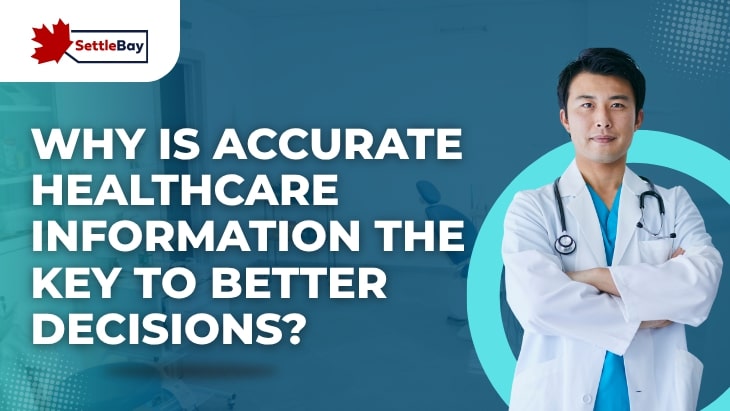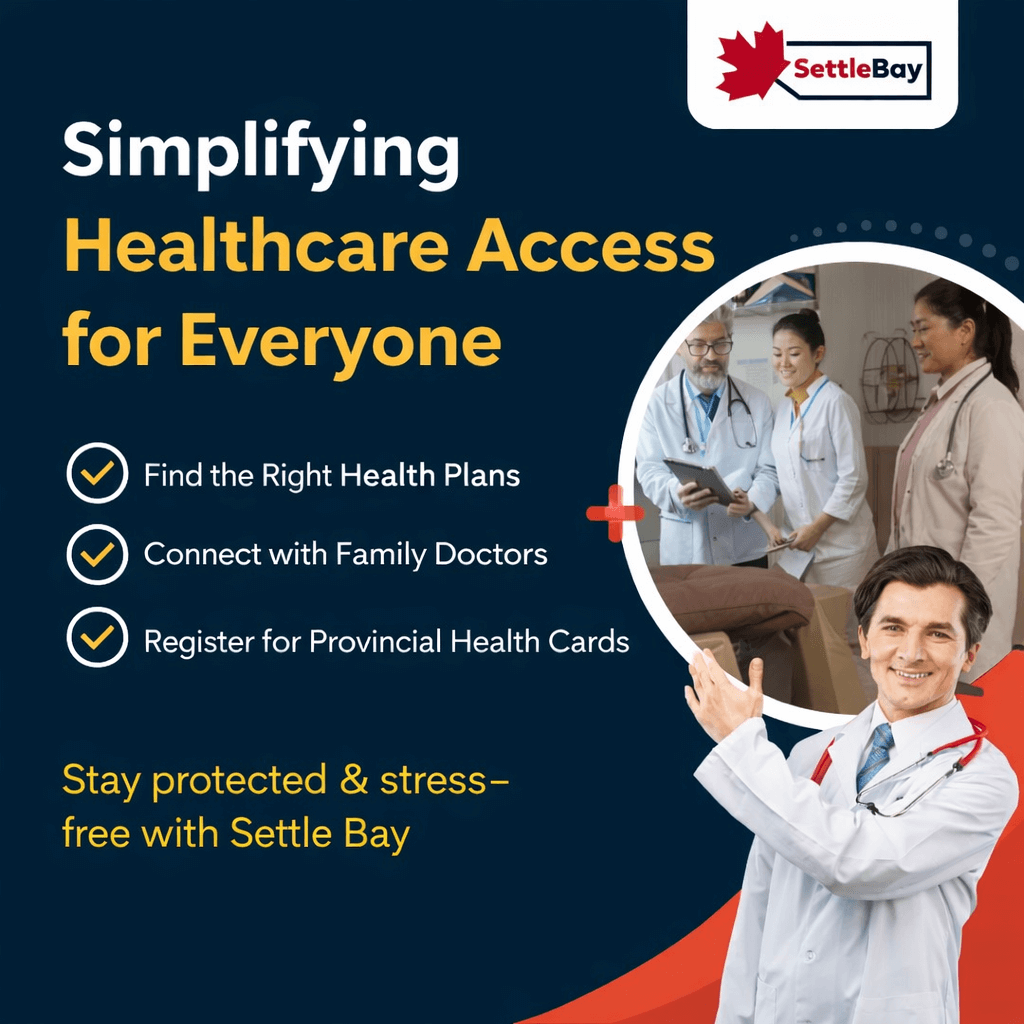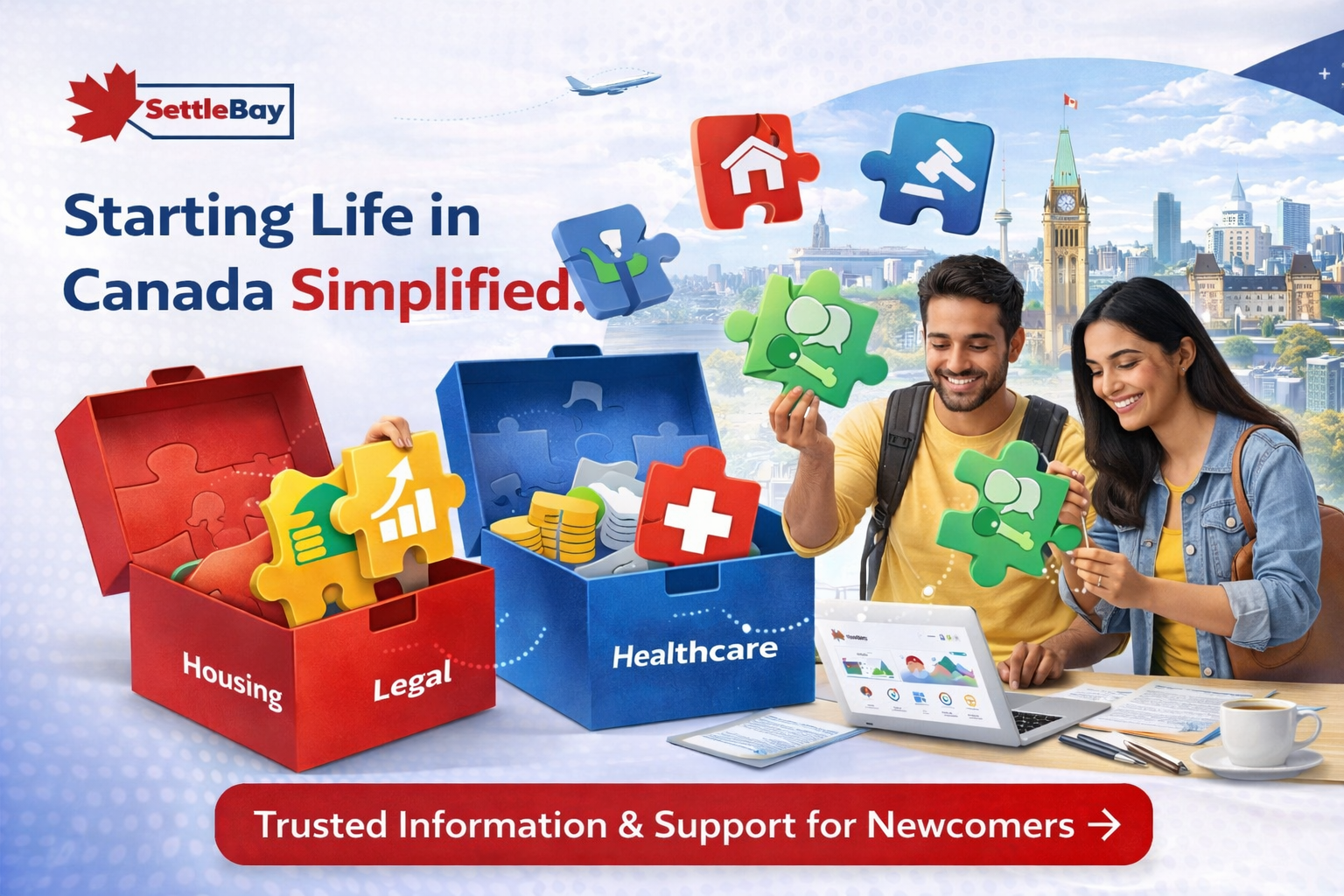In our current highly digitalized and hectic world, having information that can be trusted is more important than ever , and this is particularly true in health. Millions of individuals daily depend on online data on healthcare, digital applications, and medical records to make wellness-related decisions. In making decisions concerning treatment to the choice of a healthcare provider, information is critical in defining the outcome.
Nevertheless, not all information found on the Internet is reliable. A simple search of symptoms can provide hundreds of false or exaggerated results. This is made more difficult when new immigrants settle in Canada because they have to get acquainted with a healthcare system they do not know, with the task of discerning a reliable and unreliable source.
This brings a critical question: Why is accuracy so critical in healthcare information? The answer lies in its impact. Incorrect or incomplete healthcare data may result in misdiagnosis and inappropriate treatment options, as well as long-term health risks. In addition to personal injuries, the misinformation leads to a lack of confidence in healthcare systems, which is of particular importance to novices who have to find confidence in their new community.
Through awareness of the functionality of the accurate healthcare information and its importance, citizens and the Canada immigration services can contribute to a safer, more knowledgeable healthcare ecosystem.
Learning about Healthcare Information
Healthcare information is all the information that has to do with the well-being and health of an individual. These are medical records, clinical research, online health content and public health reports. It forms the foundation of the healthcare system, as it directs the patients and practitioners to make evidence-based decisions.
Healthcare information can be obtained through a number of sources:
• Hospitals and clinics give formal documents, including diagnoses, prescriptions and treatment plans.
• Government websites such as Health Canada or provincial health ministries provide approved medical information and health warnings to the citizens.
• Digital health apps are trackers of fitness, chronic conditions and lifestyle recommendations.
• The general information is readily available to the population through the wellness websites and community health forums.
The availability of this information has never been easier than it is today with technological advancements. Nowadays, new patients are able to make their vaccination appointments, book medical appointments with doctors, and even see their medical records online, all using their smartphones. The digital transformation is especially positive in relation to young immigrants who enter Canada, as it provides them with an opportunity to get into the healthcare system much quicker and with a minimum of obstacles.
Nevertheless, the availability should always be accompanied by precision. The accessibility also gives a chance to misinformation, and it is necessary to have trustworthy verification systems and educate patients.
The Effect of the True Information on the Patient Decision
Proper healthcare data will enable an individual to make improved decisions regarding their bodies and lifestyles. With proper and recent information, patients are assured of their ability to communicate with the doctors on the type of treatment to undergo, follow the prescribed treatment plans, and seek medical attention when necessary.
As an example, electronic health records (EHRs) enable a more comprehensive look at the medical history of a patient, as well as make sure that a doctor does not miss any allergies, past treatments, or drug interactions. This lessens risks and enhances results.
On the other hand, false information is very devastating. Self-diagnosis of patients over the internet using unreliable sources will cause patients to take incorrect medicines or postpone medical care. When outbreaks of health catastrophes such as the pandemic are taking place all over the world, false information on vaccines and misuse of treatments is shared quickly and leads to unjustified panic.
When new people or individuals relying on the Canada immigration services seek to get medical services, the issue regarding knowing which sources of information to trust is a very vital aspect of the settlement process. Reliable medical data may spell out the difference between successful adjustment and preventable medical hazards.
HHS role and role of healthcare professionals and institutions
The initial line of defense against misinformation is health care workers. It is the duty of the doctors, nurses, and medical institutions to ensure the integrity of the data and patient trust.
They do this by being strict in the verification, updating of records and communication. Through the explanation of diagnoses, the presentation of evidence-based recommendations, and responding to patient questions in an honest manner, the healthcare professional can improve the knowledge gap between the clinical knowledge and the comprehension of patients.
The institutions also adhere to the ethics and rules like the Personal Health Information Act (PHIA) in Canada and HIPAA in other states. These standards make sure that personal health information is managed confidentially, accurately and accountably.
Such laws are especially helpful to new immigrants in Canada who do not know the privacy standards in the country. These institutions can make the immigrants have confidence in the system and make informed health choices by community health programs and education campaigns.
Technology and Accuracy of Data
Digital technology has transformed the healthcare industry in the sense that it has enhanced the reliability and accessibility of healthcare information. Artificial intelligence (AI), machine learning, and data analytics can be used to identify the disease earlier and tailor the treatment program on the basis of accurate data trends.
Smart devices, including smartwatches and fitness watches, are used to capture real-time health data, such as heart rate, blood pressure, and sleep patterns. These understandings enable the patients and healthcare professionals to track conditions better.
Also, blockchain technology and cloud-based systems increase data security and integrity. They are used to maintain consistency, impossibility of tampering, and simplicity of sharing patient records between authorized providers.
In the case of new immigrants in Canada, the technologies make the health management easier. With the help of the digital patient portal, telemedicine applications, and the state-funded health information platform, a newcomer can have a consultation and receive access to the correct data even before arriving in Canada.
Difficulties in Retaining Precise Healthcare Data
In spite of the advances, there are still problems that are faced to ensure the accuracy of healthcare information. The risk of data breaches, antiquated systems, and misinformation in the online sphere is still very high.
Communication through social media is a good idea, but it tends to mislead because of false health claims that are shared. There are a lot of people that cannot distinguish between quality recommendations and fake materials, in particular, the young members of the Canadian healthcare system.
False information may have disastrous results:
• False diagnosis due to incomplete medical records.
• Wrong medication as a result of old prescriptions.
• False health alerts being reacted to with unnecessary panic online.
Thus, patients and providers should be attentive. The collaboration between trusted healthcare systems and immigration agencies should be established to raise awareness regarding the importance of checking the health information with official sources.
Teaching Patients and Health Literacy
Health literacy, which is the ability to find, understand, and use accurate health information, is one of the most effective means of making accurate healthcare decisions.
The promotion of health literacy can be done by hospitals, public health organizations, and Canada immigration services by:
• Providing workshops and online materials in a variety of languages.
• Giving new entrants authenticated healthcare guides.
• Promoting the need to seek professional advice other than the Internet searches alone.
These initiatives enable new residents to engage in their healthcare processes by assisting them to read medical information in the right way. Trust development between patients and the healthcare system is also the result of education—something that a newcomer must have as he/she is joining a new country.
The Connection of Right Information and Public Health Policies
Correct healthcare data does not simply affect personal decision-making, but it is the policy maker of health in the country and the world. The governments and medical institutions use accurate data to monitor disease outbreaks and organize vaccination campaigns and the effective distribution of medical resources.
In Canada, the real-time healthcare data helps the public health agencies to determine trends, enhance accessibility, and even shape prevention strategies. In times of emergency, such as during a pandemic, reliable data dissemination leads to fast reaction and openness.
New immigrants in Canada will find these data-driven policies encouraging because they will know that their well-being is put into consideration when making healthcare choices. The Canadian state health care system is highly inclusive, and therefore, newcomers can receive evidence-based and safe medical care the moment they enter the country.
Conclusion
It is not only a technical requirement to have accurate healthcare information, but it is the key to improved decision-making, improved health, and increased trust in the healthcare system. It could be an immigrant that is getting acquainted with the healthcare system in Canada or an experienced resident who needs to handle chronic diseases, but in any case, such information can be core, as it will guarantee safety, confidence, and empowerment.
In a world where false information can go viral, the truth is the key to trust among the people and proper healthcare administration. As new immigrants establish themselves in Canada, the knowledge of the access and confirmation of medical information is an essential component of a successful integration process. The assistance of the Canada immigration services will help the newcomers to reach the healthcare system with a lot of confidence because the information provided is trustworthy, and the data is verified.
We are at SettleBay, and we think that when we make informed decisions, it makes our communities healthier. We would like to help all newcomers to obtain precise, clear, and trusted information because we want to settle in Canada not only to create our own home but also to guarantee our healthy and safe future.
Contact SettleBay today so as to understand how we can assist you in settling in Canada through reliably providing you guidance throughout the transition process.





Leave a reply